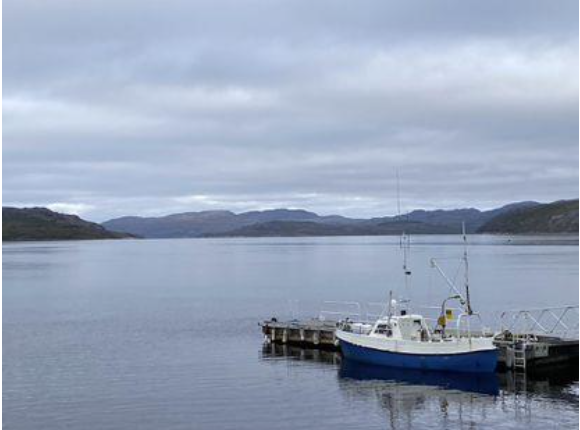Jon Pazol teaches AP science in Leyden Township High School District 212, and is embarking on a polar expedition to study climate change. As extreme weather events continue around the world - from Hurricane Ida, to extreme drought, to massive flash floods - one local science teacher is traveling to the Siberian Arctic to observe the impact of climate change firsthand.

Leyden High School District 212 science teacher Jon Pazol will participate as a research team member on a scientific expedition, joining other educators working in research locations stretching from the Arctic Ocean to Antarctica. Pazol first traveled to the Arctic 12 years ago on a Coast Guard icebreaker that was mapping the ocean floor. “I got bit by the polar bug,” Pazol said. “The sun never set, and it was incredible to see polar bears in their natural habitat.”
This time, Pazol will travel on the Russian icebreaker RV Akademik Tryoshnikov for a six-week expedition in the Siberian Arctic. He will participate on a team studying the interactions between fresh and saltwater ocean currents and climate change, he said. The project, called NABOS (Nansen and Amundsen Basins Observational System – named for the location in the Arctic Ocean), is part of a multi-year program designed to collect data about the changing Arctic.

This photo of Kirkenes, Norway, 250 miles above Arctic Circle, was taken by Leyden Township High School District 212 science teacher Jon Pazol, who is there preparing to join an Arctic expedition to study climate change.
“Hopefully, I’ll be able to do some live streaming with the students if the internet is good enough,” Pazol said. Pazol is one of eleven educators selected for PolarTREC’s STEM at the Poles! program. PolarTREC is an educational research experience in which educators participate in polar research, working closely with scientists as a pathway to improving science education, according to its website. PolarTREC is managed by the Arctic Research Consortium of the U.S. (ARCUS) and funded by the National Science Foundation.
While on field expeditions, educators and researchers share their experiences through the use of Internet tools such as online teacher and researcher journals, message boards, photo albums, podcasts, PolarConnect real-time presentations from the field, and online learning resources, states the PolarTREC website.
A substitute teacher is taking over Pazol’s classes while he is on the expedition. Pazol said the substitute is a former student of his who was in his class 12 years ago during Pazol’s last trip to the Arctic. Before embarking on the expedition, Pazol and other team members have to quarantine in Kirkenes, Norway, which Pazol said is about 250 miles north of the Arctic Circle, for about a week. The expedition should launch from northern Norway Sept. 10, with Pazol returning to the United States in mid-October.
“It’s an adventure and a great opportunity for a science geek,” Pazol said. “Although last time, I did find myself craving darkness by the end.”
This photo of scientists checking equipment in preparation for an Arctic expedition was taken by Leyden Township High School District 212 science teacher Jon Pazol. He is in northern Norway, above the Arctic Circle, preparing to join them on the Arctic expedition to study climate change.

This program is supported by the National Science Foundation. Any opinions, findings, and conclusions or recommendations expressed by this program are those of the PIs and coordinating team, and do not necessarily reflect the views of the National Science Foundation.
